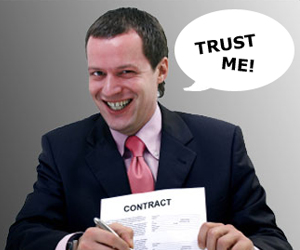Timeshare sales presentations often feature luxurious properties, enticing vacations, and promises of hassle-free getaways. However, behind the enticing facade lies an industry that frequently overprices and overpromises its products. This article delves into the factors contributing to the illusion of value in timeshares and why they are often not the great investments they are portrayed to be.
1. Inflated Initial Costs
Timeshare developers tend to inflate the initial purchase price to create an illusion of exclusivity and luxury. Sales presentations often emphasize the high quality of the properties, the amenities, and the lifestyle, leading buyers to believe they are making a substantial investment. In reality, these high upfront costs often do not align with the actual market value of the property.
2. Limited Resale Value
Timeshares are notoriously challenging to resell, and when they are put on the resale market, they often sell for a fraction of the initial purchase price. The limited demand for timeshares means that owners are unlikely to recoup their investment when selling, further exposing the illusion of value.
3. Escalating Maintenance Fees
Maintenance fees, which owners are required to pay annually, can increase over time. The promise of maintenance fees being a manageable expense often fades as fees continue to rise. The cumulative cost of maintenance fees can negate any perceived value in timeshare ownership.
4. Limited Availability
Timeshare owners are often disappointed when they attempt to book their vacation weeks. High demand for popular dates and locations can lead to limited availability, making it challenging to secure desired reservations. This limited availability erodes the perceived value of owning a timeshare.
5. Hidden Costs and Fees
In addition to maintenance fees, owners may be responsible for other costs, including property taxes, insurance, exchange program fees, and special assessments. These hidden costs can substantially increase the overall financial burden of timeshare ownership.
6. Depreciating Market Value
Unlike real estate, which tends to appreciate over time, timeshares typically depreciate. The resale market for timeshares is flooded with properties, resulting in low resale values. The depreciation in market value contradicts the portrayal of timeshares as valuable investments.
7. Misleading Sales Presentations
Sales representatives employ deceptive tactics, such as emphasizing the potential for rental income, exchange flexibility, and high demand for resale. These misleading presentations create a false sense of value that may not align with the reality of timeshare ownership.
8. Pressure to Upgrade
Owners may be subjected to pressure to upgrade their timeshare, often through the purchase of additional weeks or points. The promise of enhanced benefits and flexibility can lead owners to believe that upgrading is necessary, despite the escalating costs.
9. Difficulty in Cancellation
Exiting a timeshare contract can be a complex and lengthy process, making it challenging for owners to break free from their obligations. The difficulty in exiting a timeshare reinforces the illusion of value, as owners often feel trapped in their contracts.
10. Protecting Yourself from the Illusion of Value
To protect yourself from the illusion of value in timeshares, consider the following steps:
a. Conduct Independent Research: Rely on independent sources and market data to assess the actual market value of timeshares at the desired location.
b. Evaluate Resale Values: Research the resale values of similar timeshares in the secondary market to gauge their actual worth.
c. Scrutinize Maintenance Fees: Analyze the historical trends of maintenance fee increases for the timeshare property you are interested in.
d. Examine Cancellation Options: Ensure you understand the cancellation and exit options available to you in case you change your mind after purchase.
e. Be Skeptical of High-Pressure Sales Tactics: Do not succumb to high-pressure sales tactics during presentations. Take your time to evaluate the offer thoroughly.
f. Seek Legal Counsel: Consult with a timeshare attorney to review contracts and assess the potential legal implications of your purchase.
Conclusion
Timeshares are frequently marketed with an illusion of value, promising a luxurious and valuable investment. However, the reality often contradicts these claims, with inflated initial costs, limited resale values, escalating maintenance fees, and hidden costs eroding the perceived value of timeshare ownership. To protect yourself from the illusion of value, conduct independent research, evaluate resale values, scrutinize maintenance fees, examine cancellation options, be skeptical of high-pressure sales tactics, and seek legal counsel when necessary. By doing so, you can make informed decisions about timeshare ownership and avoid falling for the industry’s illusions.




